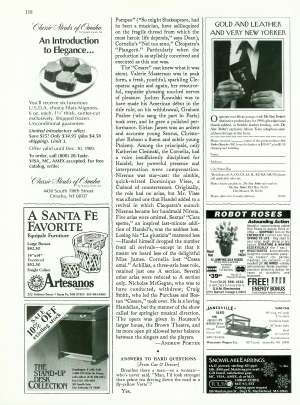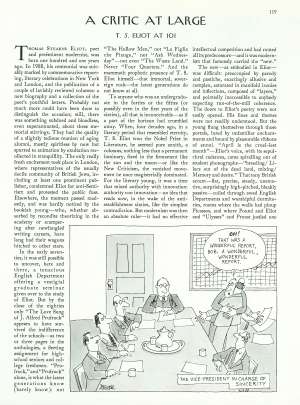The New Yorker, November 20, 1989 P. 119
A CRITIC AT LARGE about the poet T.S. Eliot, who once was a commanding literary figure whose formulations were revered. It's impossible nowadays to imagine such authority accruing to a poet. In his person, if not in his poetry, Eliot was false coinage. Born in St, Louis, he became indistinguishable from a proper British Tory. Such unalloyed self-alteration suggests a hatred of the original design. And certainly Eliot condemned the optimism of democratic American meliorism, he despised Unitarianism, centered less on personal salvation than on social good, & he had contempt for Jews as marginal, if not inimical to his concept of Christian community. In the 40s & 50s Eliot was absolute art: high art when art was its most serious & elitist. Eliot's aristocratic ideas which some might call Eurocentric & obscurantist no longer interest most literary intellectuals. The biographies that have appeared in recent years have brought Eliot down to human scale. They've exposed the nightmare of Eliot's first marriage & its devastating evolution. It is in the nature of fame to undergo revision: Eliot appears now to be similarlt receding into the parochial, even the sectarian. His reach, once broad enough to incorporate the Upanishads, shrank to extend no farther than the neighborhood sacristy, & to a still smaller place the closet of the self. The chief elements of the Age of Eliot are no longer with us & may never return: the belief that poetry can be redemptive; the conviction that history underlies poetry.


